The objective of the Electrical Lineworker Program (ELP) is to provide the opportunity for students to embark on a meaningful and rewarding career in the electrical line work industry. This is accomplished by providing training methods that have proven to be extremely effective in preparing students to be highly successful employees.
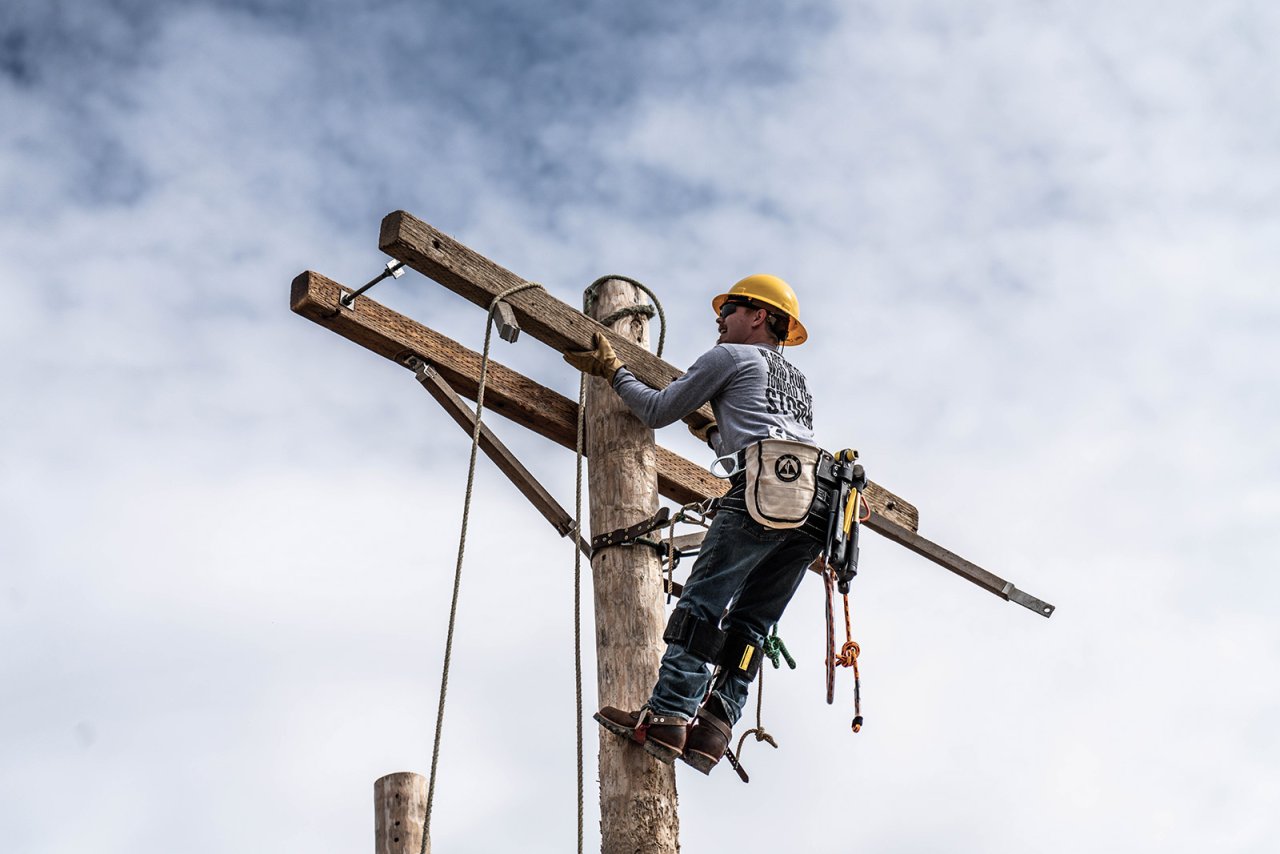
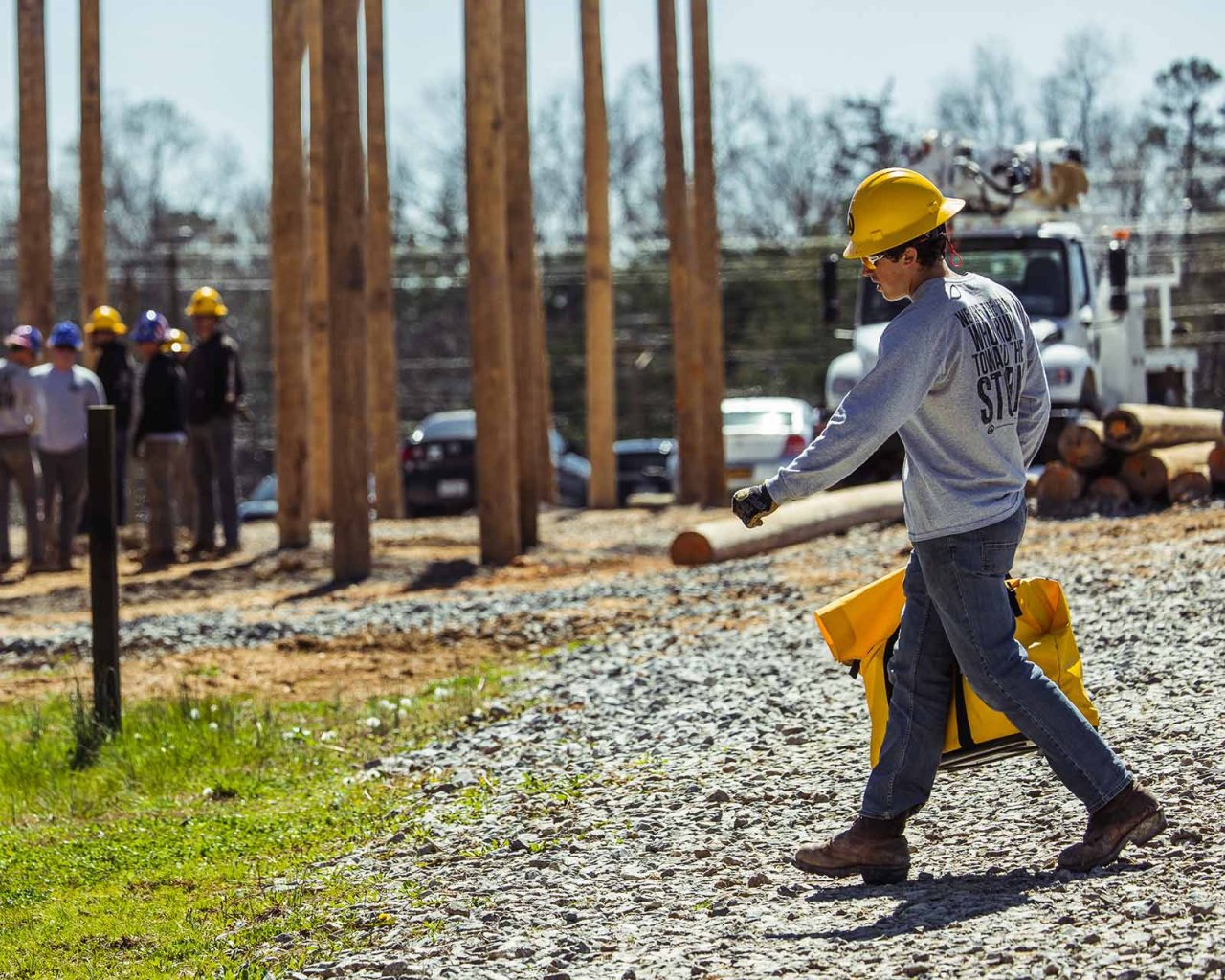
The Electrical Lineworker Program consists of 320 field training hours and 180 classroom hours, for a combined 500 hours of premier pre-apprentice training. Throughout your journey of becoming a lineworker, SLTC provides you with all the necessary classes and certifications that will make you stand out to future employers. In only 15 weeks, we will equip you with the Knowledge, Discipline, and Ability to pursue a successful career in the electrical utility industry.
$22,745
Next Class Begins May 2, 2024
11 Certifications
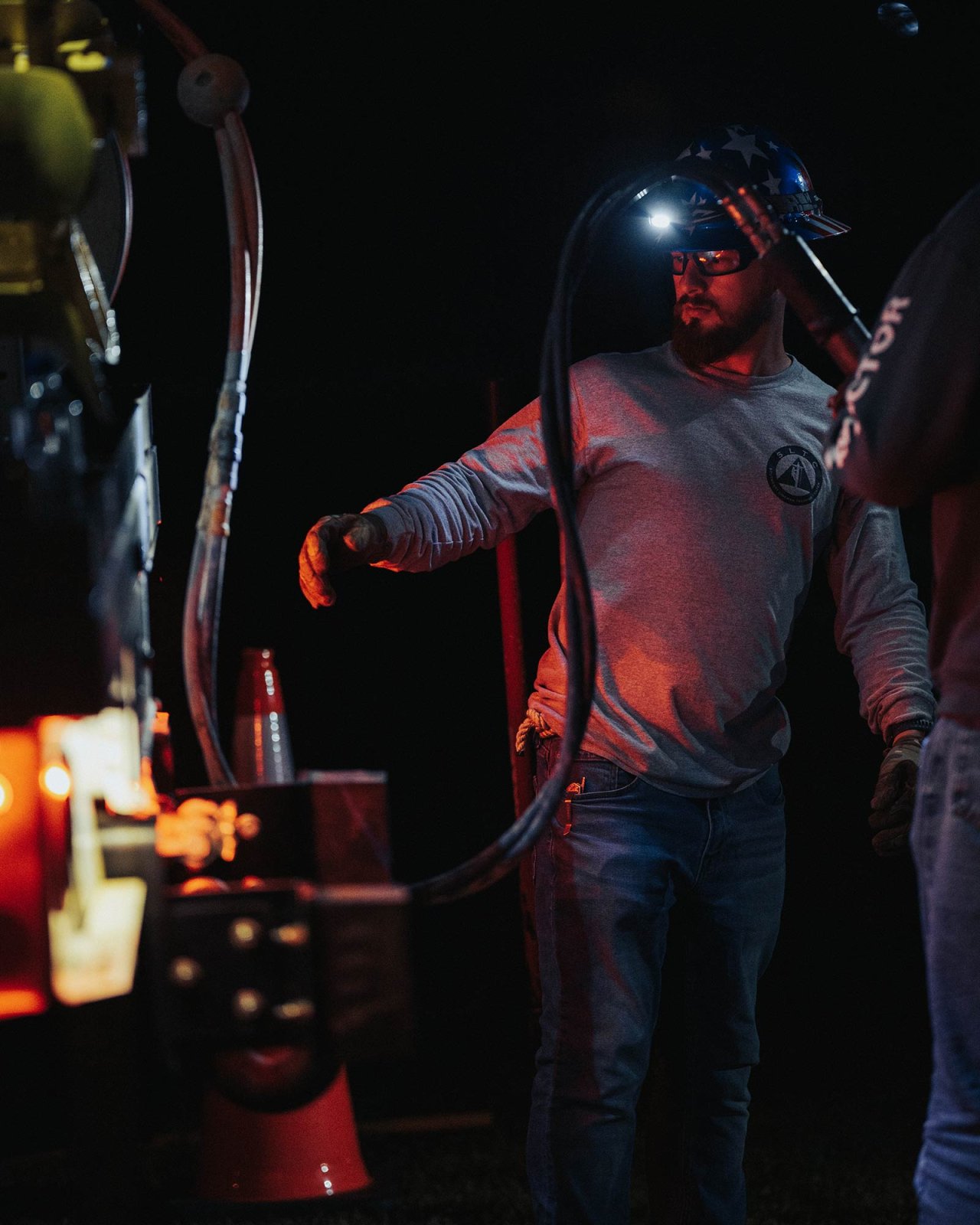
A Lineworker in its day-to-day work installs, maintains, and repairs electrical power systems and telecommunication cables, but when a storm hits a lineworker is much more. A lineworker is the first to run toward the storm and put it all on the line to restore power and communications to communities after disaster hits. Which way will you go?
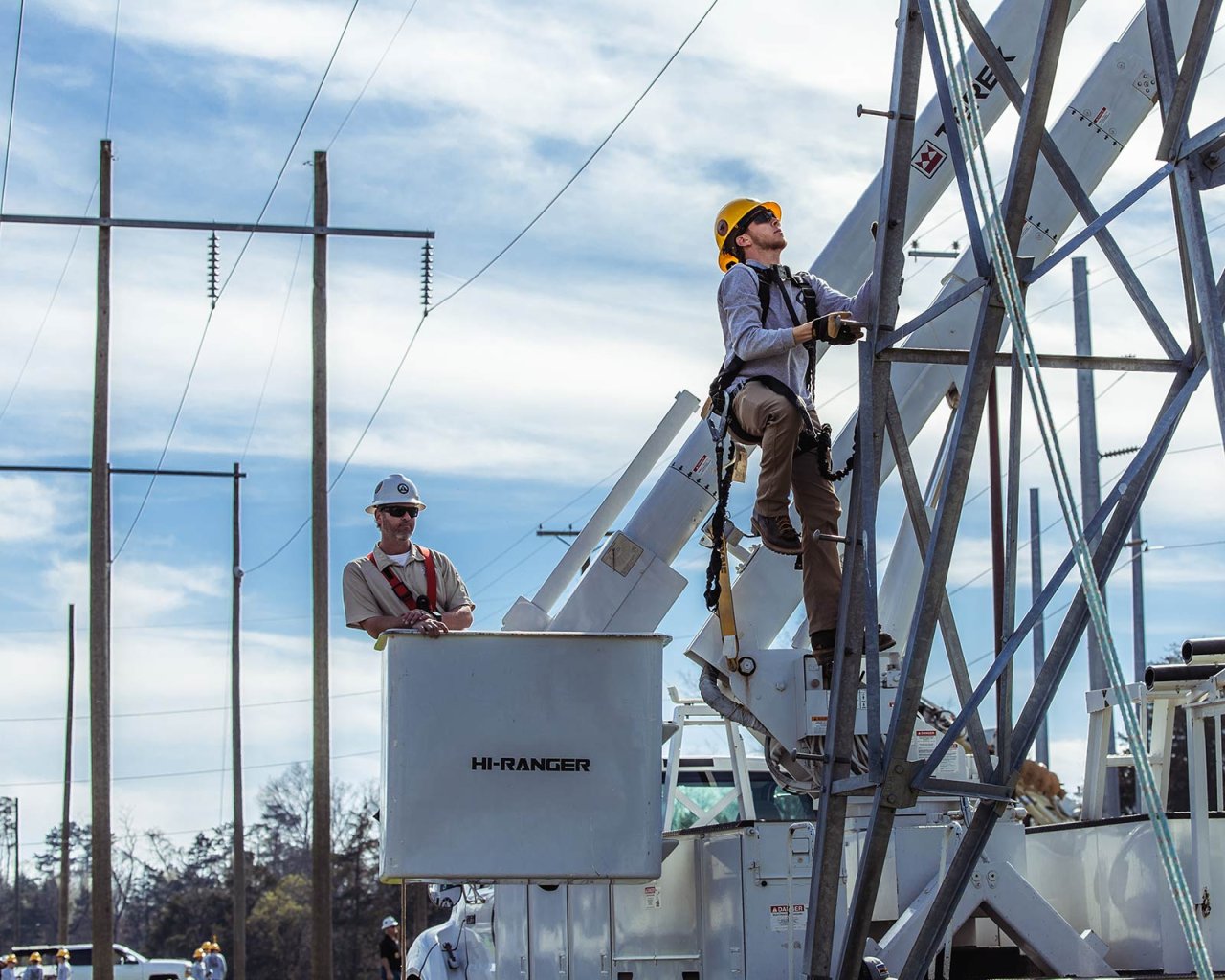
The electric power industry plays a critical role in our society, it advances the nation’s economic growth, productivity, and promotes business development. Power delivery is a $840-billion industry and continues growing as the demand for power usage is projected to increase 23% by 2040. Completion of our Electrical program qualifies you for a variety of job opportunities including but not limited to: Apprentice Lineworker, Electrical Power-Line Installers & Repairers, Telecommunications, Meter Reading & Testing, Groundman / Helper, Equipment Operators, and Electricians.

During the first five weeks of training, students are taught how to safely climb and maneuver in elevated positions on wooden poles. These skills directly translate to the day-to-day roles of an electrical lineman.
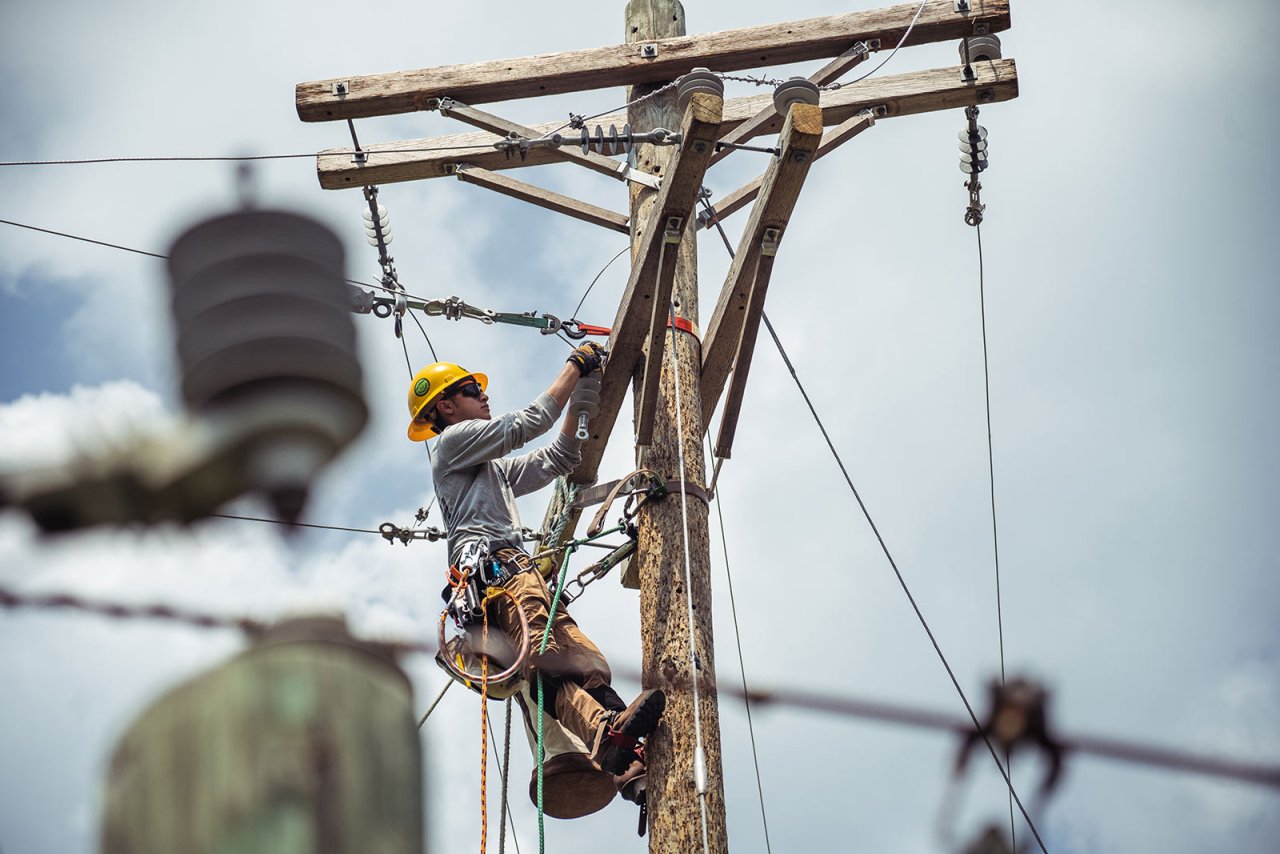
Students are taught how to safely build and maintain all aspects of power line construction. We teach the fundamentals of electrical concepts in a safe, controlled training environment.

The use of equipment is a vital part of the educational journey. Students will learn how to operate a digger derrick, bucket truck, and crane operation while following safe worksite protocol.

While our program does focus heavily on outdoor field training, academic studies lays the foundation for safe work. Each of our courses are base level, and will teach introductory information to be built upon during your training.
Electrical Systems
Basic Transformers
Basic Electricity
Personal Protective Grounding
Rigging Fundamentals
Career Planning & Strategies
Metering
Underground Distribution
Climbing
OSHA 10 Hour ET&D
First Aid/CPR
NSC Flagger Certification
Pole-Top, Bucket Truck Rescue
Class A CDL License
Digger Derrick Qualification
NCCER Crane Certification

Earning a Class A CDL is a crucial step in having a successful career in linework. It is very difficult to get hired in the industry without a CDL. Our Electrical Program provides students with the opportunity to receive CDL hands-on training as well as online course material to prepare them for their CDL test. We also have our very own approved testing site on campus so students can train, test, and receive certification all while attending SLTC.
Summer 2024
Class 74 (Enrolling)
Fall 2024
Class 75 (Enrolling)
Spring 2025
Class 76 (Enrolling)
With over 100 acres of training grounds our campuses provide classroom space, training labs, field lines, and equipment operation opportunities for hands-on training experiences. When taking a break from training, we are surrounded by countless outdoor activities with beautiful views, hiking, swimming, some of the best fishing in the Southeast, and more!
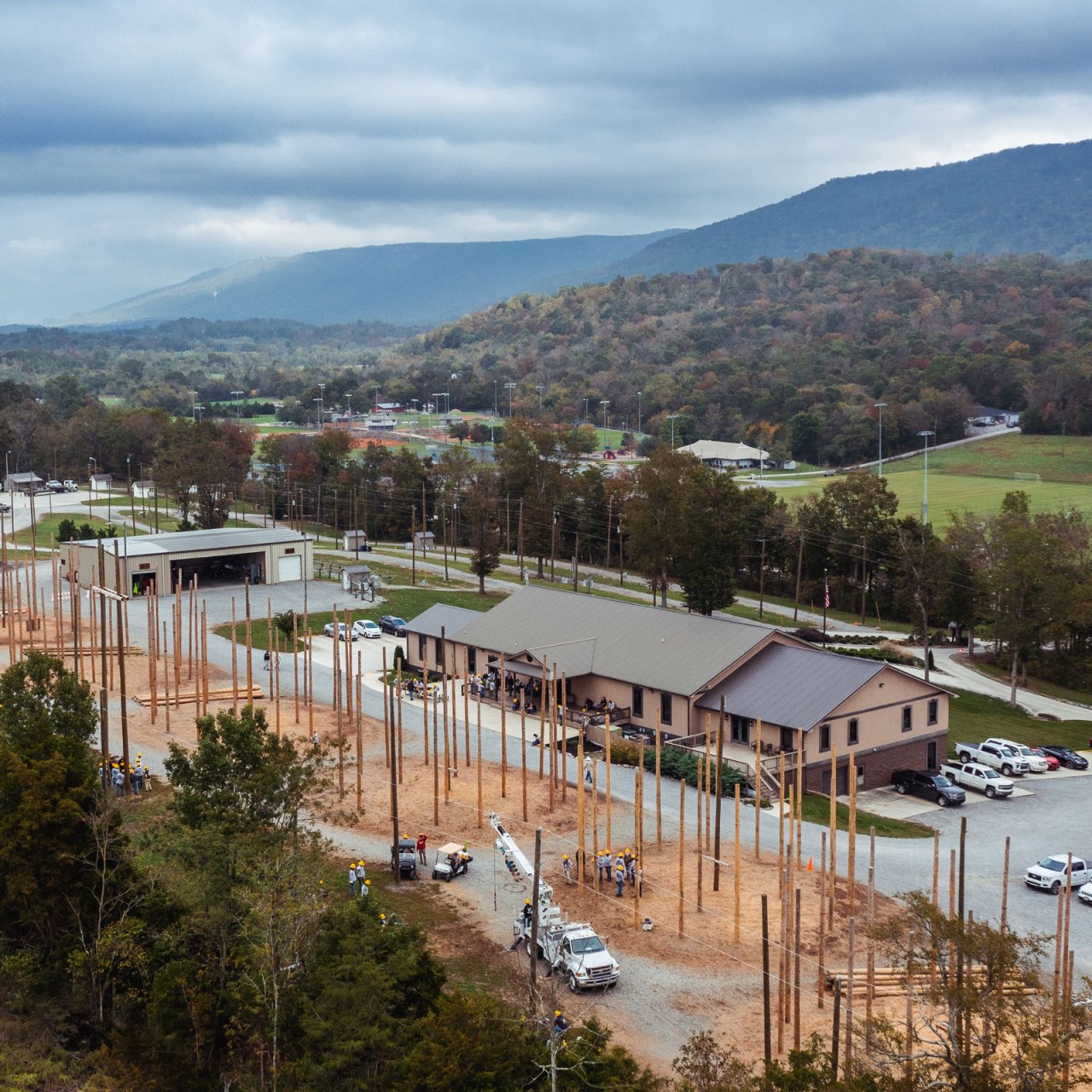
Every class we have students from all over the country, so housing assistance is just another way SLTC helps students prepare for their time here. While housing is not provided by SLTC, we work with the community to provide many options for students to have fully furnished housing for the entirety of their program. Check out your options on our housing page.


Training hours in our Electrical Lineworker Program consist of 320 field hours and 180 classroom hours. Linework is best learned with hands-on experience, so most of your time will be spent outside developing your skills.
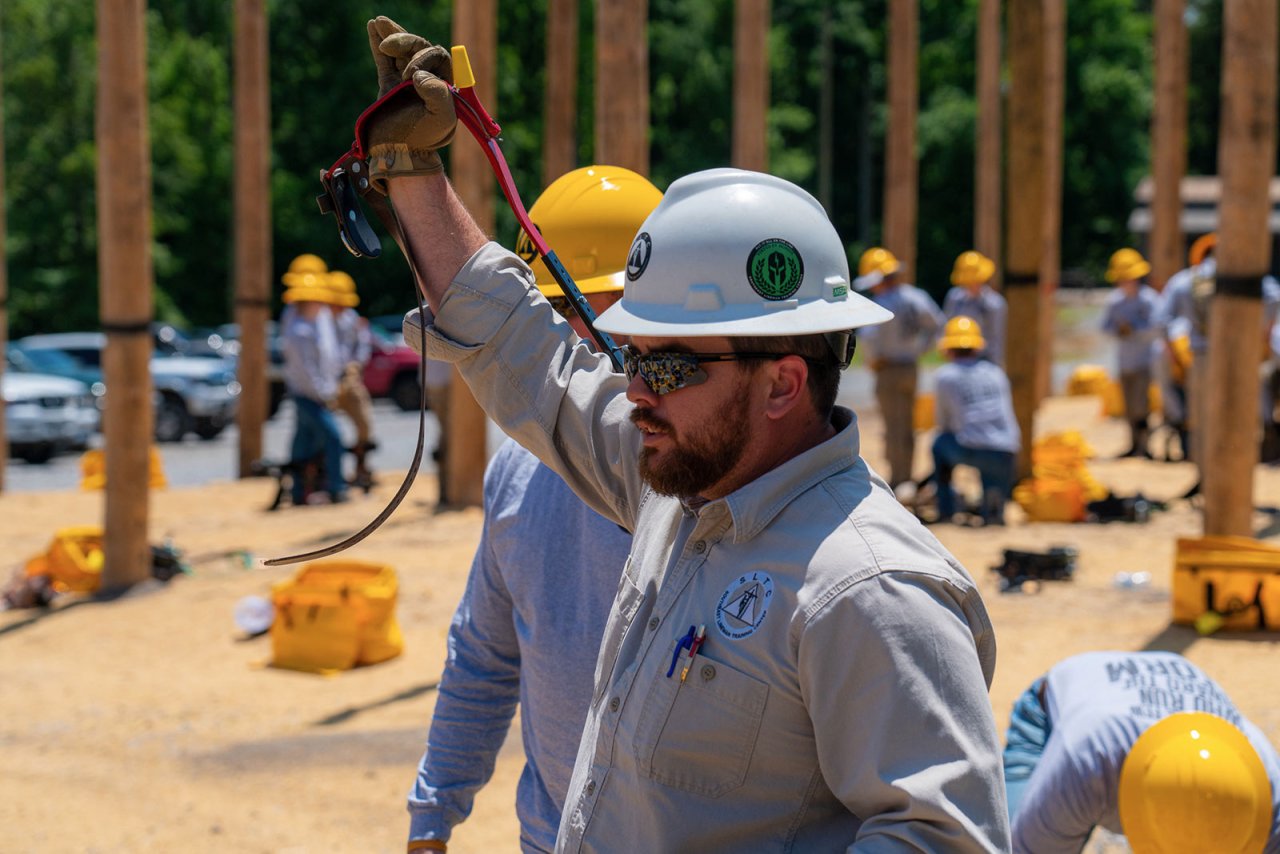
We have over 30 full-time instructors on staff, each with a passion for passing on their knowledge of the trade. Each instructor dedicates their time to helping you become the best you can be. Each with their own unique teaching style, our instructors are industry professionals with years of experience, ready to show you the ropes.

Training is completed in a 21-person Pole Circle (PC), each with their own unique identity. Pole Circle training is meant to replicate crew life, emphasizing teamwork, accountability, and trust amongst your crew. You are your brother’s keeper.
Choosing linework as a career is a big decision, we want you to feel confident that SLTC is the right place for you. There are many reasons we think we are a perfect fit for you.

SLTC students are funded through various different means. Many use student loans or personally fund their education, but there are many options available. Along with financial aid, there are many different scholarships that potential students can apply for. Check out our financial aid page to learn more about your options.
